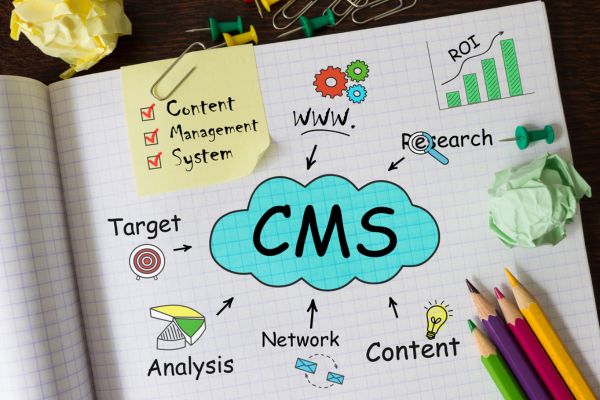In today’s fast-paced digital world, the role of information technology (IT) continues to evolve at an unprecedented pace. Whether you’re just starting your career in IT or looking to advance your skills, obtaining relevant certifications can set you apart from the competition. This article dives deep into the realm of information technology certifications, providing you with essential insights on their significance, types, and how to choose the right one for your career path.
Understanding Information Technology Certifications
What Are IT Certifications?
IT certifications are recognized credentials that validate your skills and knowledge in specific areas of information technology. These certifications demonstrate to potential employers that you possess the expertise needed to perform particular tasks and solve problems within the IT domain. They can cover a variety of topics, including networking, security, cloud computing, software development, and more.
Why Pursue IT Certifications?
- Career Advancement: Certifications can open doors to new job opportunities and promotions.
- Increased Earning Potential: Certified professionals often earn higher salaries compared to their non-certified counterparts.
- Skill Validation: Certifications provide tangible proof of your skills and knowledge to employers.
- Networking Opportunities: Engaging with certification programs can connect you with industry professionals and communities.
- Staying Current: The IT field is ever-evolving. Certifications help you stay updated with the latest technologies and trends.
Popular Information Technology Certifications
With numerous certifications available, choosing the right one can feel overwhelming. Here’s a breakdown of some of the most sought-after IT certifications:
1. CompTIA A+
Overview: A foundational certification for those entering the IT field, CompTIA A+ covers essential topics such as hardware, software, troubleshooting, and networking.
Ideal For: Beginners looking to start a career in IT support.
2. Cisco Certified Network Associate (CCNA)
Overview: This certification focuses on networking concepts, including routing and switching. It’s highly regarded in the networking field.
Ideal For: Individuals aiming for a career in network administration or engineering.
3. Certified Information Systems Security Professional (CISSP)
Overview: CISSP is a globally recognized certification in the field of information security. It validates your ability to effectively design, implement, and manage a best-in-class cybersecurity program.
Ideal For: Security professionals and those looking to advance in the cybersecurity field.
4. Amazon Web Services (AWS) Certified Solutions Architect
Overview: This certification demonstrates expertise in designing and deploying scalable systems on AWS. It’s essential for cloud architects and developers.
Ideal For: Professionals working in cloud computing or looking to transition into cloud roles.
5. Microsoft Certified: Azure Administrator Associate
Overview: This certification validates your skills in managing Azure subscriptions, implementing storage solutions, and managing virtual networks.
Ideal For: IT professionals involved in managing cloud resources on Microsoft Azure.
6. Project Management Professional (PMP)
Overview: While not strictly an IT certification, PMP is crucial for IT project managers. It validates your ability to lead and direct projects effectively.
Ideal For: Those aspiring to move into IT project management roles.
7. Certified Ethical Hacker (CEH)
Overview: CEH trains you to think like a hacker, helping you understand vulnerabilities and security measures.
Ideal For: Aspiring cybersecurity professionals focused on offensive security strategies.
How to Choose the Right IT Certification
Selecting the right certification requires careful consideration. Here are some factors to help guide your decision:
1. Assess Your Career Goals
Determine your long-term career aspirations. Do you want to specialize in cybersecurity, networking, or cloud computing? Your career path will influence the certifications you should pursue.
2. Consider Your Current Skill Level
Evaluate your existing skills and knowledge. If you’re a beginner, starting with foundational certifications like CompTIA A+ might be best. More experienced professionals may opt for advanced certifications.
3. Research Industry Demand
Look at job postings in your desired field to see which certifications are most commonly requested by employers. This research can provide valuable insight into which credentials will enhance your employability.
4. Evaluate Certification Costs
Consider the financial investment required for each certification, including exam fees, study materials, and training courses. Weigh this against the potential return on investment in terms of job opportunities and salary increases.
5. Check Recertification Requirements
Many certifications require periodic renewal. Be sure to understand the recertification process and any continuing education requirements.
Preparing for IT Certification Exams
Once you’ve selected a certification, it’s time to prepare for the exam. Here are some effective strategies:
1. Utilize Official Study Materials
Most certification organizations offer official study guides and materials. These resources are tailored to the exam content and can be invaluable in your preparation.
2. Join Online Courses and Bootcamps
Consider enrolling in online courses or bootcamps that focus on your chosen certification. These programs often provide structured learning and access to experienced instructors.
3. Engage with Study Groups
Joining study groups can enhance your learning experience. Collaborating with others can provide different perspectives and help reinforce concepts.
4. Practice with Sample Exams
Taking practice exams can familiarize you with the format and types of questions you’ll encounter. This can significantly boost your confidence before the actual exam.
5. Stay Consistent
Create a study schedule that allows you to cover all necessary topics without cramming. Consistent, focused study sessions are more effective than last-minute preparations.
FAQs about Information Technology Certifications
Q1: Are IT certifications worth the investment?
Absolutely! Certifications can significantly enhance your career prospects, increase your earning potential, and validate your skills in a competitive job market.
Q2: How long does it take to prepare for an IT certification?
Preparation time varies depending on the certification and your existing knowledge. On average, it may take several weeks to a few months of dedicated study.
Q3: Can I take certification exams online?
Many certification organizations offer online testing options, allowing you to take exams from the comfort of your home. Check the specific requirements for each certification.
Q4: What if I fail the certification exam?
Most certification providers allow you to retake the exam after a certain waiting period. Review your study materials and focus on areas where you struggled before attempting again.
Q5: How often do I need to renew my IT certifications?
Renewal requirements vary by certification. Some may require renewal every few years, while others may necessitate continuing education credits or retaking the exam.
Conclusion: Your Path to IT Certification Success
In summary, pursuing information technology certifications can be a game-changer for your career. With the right certification, you can unlock new opportunities, validate your skills, and enhance your earning potential. As you embark on this journey, remember to assess your goals, choose wisely, and prepare diligently. The IT landscape is constantly evolving, and with the right certifications in your toolkit, you’ll be well-equipped to navigate its challenges and seize its opportunities.
Authoritative Links
- CompTIA A+: https://www.comptia.org/certifications/a
- Cisco CCNA: https://www.cisco.com/c/en/us/training-events/training-certifications/certifications/associate/ccna.html
- CISSP: https://www.isc2.org/Certifications/CISSP
- AWS Certified Solutions Architect: https://aws.amazon.com/certification/certified-solutions-architect-associate/
- Microsoft Azure Administrator: https://learn.microsoft.com/en-us/certifications/azure-administrator/
- PMP: https://www.pmi.org/certifications/project-management-pmp
- CEH: https://www.eccouncil.org/programs/certified-ethical-hacker-ceh/



